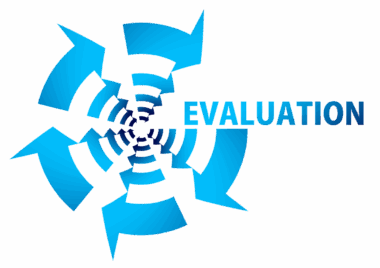Behavioral Assessments and Remote Workforce Performance Management
The rise of remote work has transformed how organizations manage and assess employee performance. Behavioral assessments offer a robust framework for evaluating employee traits and skills, crucial in a digital workspace. As the workforce evolves, traditional performance management methods struggle to adapt. Emphasizing communication, engagement, and alignment with organizational goals become increasingly important. Behavioral assessments provide insights into employees’ work styles and motivations that can enhance team dynamics. This enables managers to identify strengths and weaknesses remotely, fostering efficient remote communication. Understanding employees’ behaviors helps organizations craft tailored development plans, enhancing individual and team performance. Moreover, the application of technology in conducting these assessments streamlines data collection and analysis, making the remote process more effective. Organizations utilizing behavioral assessments can better approach training, goal setting, and career development in the virtual environment. Consequently, companies can create a more cohesive remote culture, ultimately leading to improved overall performance metrics. By focusing on behavior and engagement, organizations can foster an environment that encourages productivity and innovation, essential for long-term sustainability.
The implementation of behavioral assessments in performance management underscores various advantages. Firstly, these assessments help managers understand the diverse personalities of their teams, which is vital for optimizing collaborations. More importantly, assessing behavior helps identify potential conflicts and challenges early, enabling preemptive interventions before issues escalate. Furthermore, organizations can leverage behavioral insights to foster a culture of feedback and continuous improvement. This opens pathways for constructive dialogue between remote employees and their managers, leading to enhanced performance. Insights derived from assessments can guide leadership in making informed decisions regarding hiring, promotions, and team structures. By aligning team compositions with behavioral strengths, organizations can capitalize on synergy that boosts performance. Moreover, behavioral assessments empower employees by offering them information regarding their strengths and areas for growth. This self-awareness creates opportunities for personal development and engagement, ultimately aligning individual goals with organizational objectives. The result is a cohesive work environment that fosters resilience, adaptability, and high performance. Embracing behavioral assessments in a remote context is an innovative approach that strengthens connections, encouraging a thriving workplace despite geographical challenges.
The Role of Technology in Behavioral Assessments
Technological advancements play a significant role in conducting behavioral assessments for remote workforce performance management. Online platforms and tools facilitate the collection and analysis of behavioral data efficiently. These technologies enable organizations to assess employee behaviors systematically, providing objective insights into their performance. Additionally, virtual assessments can leverage advanced algorithms to analyze patterns and trends in employee behavior. This ensures that data remains relevant and actionable, aiding remote management practices. Using data visualization tools, leaders can simplify complex behavioral data, making it easier to communicate findings to their teams. The integration of technology enables a seamless assessment process that can occur at any time and from any location. Furthermore, e-learning modules can provide personalized development opportunities, based on assessment results. This creates a culture of growth and continuous learning among remote employees. Organizations can also utilize mobile applications to gather real-time feedback on employee performance and engagement. As assessments become more integrated with technology, they can adapt to changing work environments, ensuring that behavioral insights remain aligned with modern workforce expectations and trends. Ultimately, technology enhances the effectiveness of behavioral assessments, leading to improved employee performance management.
Behavioral assessments within remote work contexts also help establish key performance indicators (KPIs) that align with organizational goals. By analyzing employee behavior, organizations can determine relevant KPIs that reflect desired outcomes, notably efficiency, collaboration, and innovation. Setting clear expectations rooted in behavioral insights facilitates focused goal-setting for individuals and teams. Consequently, employees are more likely to understand their roles and what is expected of them in a remote setting. Furthermore, organizations should perform regular reviews of these KPIs and adapt them according to evolving circumstances. This adaptive approach promotes accountability among employees, ensuring that they remain aligned with team objectives. Additionally, behavioral data can aid in the evaluation of team dynamics, emphasizing strengths to leverage in achieving these KPIs. Organizations may find that certain behaviors correlate with higher performance levels, enabling them to optimize workflows and processes effectively. Encouraging feedback and discussion around these KPIs not only enhances transparency, but also fosters collaboration in meeting collective goals. This engagement ultimately empowers employees to take ownership of their performance, reinforcing a culture of accountability that is vital for remote teams.
Enhancing Employee Engagement through Assessments
Behavioral assessments can significantly enhance employee engagement in a remote working environment. As organizations strive to keep employees motivated and connected, these assessments offer valuable insights into employees’ needs and preferences. Understanding individual behaviors allows managers to tailor their leadership styles, fostering a sense of belonging among team members. Engaged employees are more likely to contribute their best efforts toward achieving organizational goals. Through the use of behavioral assessments, managers can identify what drives each employee, whether recognition, personal growth, or work-life balance. This knowledge enables personalized engagement strategies that resonate with remote employees. Moreover, regular behavioral assessments can help track engagement levels over time, refining approaches as necessary to address any emerging concerns. Incorporating employee feedback via these assessments also reinforces a culture of active participation and collaboration. By creating an open dialogue, employees feel valued and appreciated, which boosts morale and commitment. Consistently engaging employees through behavioral assessments promotes positive relationships within remote teams, leading to a significant performance uptick. By prioritizing engagement, organizations can sustain productivity and satisfaction among their remote workforce.
In conclusion, behavioral assessments are essential tools for managing remote workforce performance effectively. The shift to remote work demands innovative approaches to performance management, and these assessments provide critical insights into employee behavior and motivations. Their implementation not only aids in understanding individual performances but also enhances team dynamics in virtual environments. As organizations embrace these assessments, they must ensure that data collected is utilized ethically and transparently. Ultimately, promoting transparency reassures employees about the assessment process, encouraging their active participation. Moreover, organizations should prioritize the continuous improvement of these assessments to adapt to the evolving needs of the workforce. By staying abreast of industry trends and best practices, companies can refine their approach to behavioral assessments. The intertwined relationship between behavioral assessments and remote workforce performance can lead to enhanced efficiency, employee satisfaction, and organizational success. As the world of work continues to change, adopting behavioral assessments as a core element of performance management is not just beneficial but necessary. Embracing such innovations prepares organizations for future challenges, ensuring they remain competitive in an increasingly digital landscape.
Implementation Insights for Organizations
For effective behavioral assessments in a remote environment, organizations must implement clear guidelines and frameworks. These guidelines should outline how assessments will be conducted, focusing on transparency and consistency. Leaders must ensure that all employees understand the purpose of these assessments and how the insights will be utilized. Additionally, providing training resources for employees on the assessment processes empowers them, enabling participation with greater confidence. Organizations should also establish timelines for regular assessments, as this fosters a routine that employees can anticipate. Consistent scheduling not only enhances accountability but also allows for timely performance feedback. Furthermore, organizations must solicit feedback on the assessment processes from employees, making adjustments as necessary to maintain relevance. Prioritizing a supportive atmosphere encourages employees to share their experiences and insights openly. Ultimately, the successful implementation of behavioral assessments hinges on the engagement of all stakeholders. Clear communication, feedback, and responsiveness to employee needs will enhance their effectiveness, as everyone becomes more invested in the process. By focusing on these implementation insights, organizations can create a robust framework that drives performance management while fostering a positive remote work culture.
Future Trends in Behavioral Assessments
As we look to the future of behavioral assessments in remote workforce performance management, emerging trends indicate significant advancements in technology and methodology. Organizations are increasingly harnessing artificial intelligence and machine learning to enhance assessment accuracy and efficiency. These technologies provide real-time analytics, offering insights that enable proactive decision-making. Predictive analytics, in particular, allows organizations to foresee performance trends based on behavioral patterns. Additionally, integrating behavioral assessments with existing HR systems facilitates streamlined data management, ensuring that performance insights remain quickly accessible. The emergence of virtual reality into assessments also presents exciting possibilities for engaging remote employees. This immersive approach allows for realistic simulations to evaluate behaviors in dynamic scenarios. Furthermore, the focus on mental health and well-being in assessments is becoming paramount as organizations recognize their impact on performance. Establishing a psychological safety net to address employee concerns will drive engagement and performance. As these trends develop, behavioral assessments will evolve into more holistic tools, integrating emotional intelligence and soft skills. Organizations adopting these trends will be better prepared to support their remote workforce, fostering environments conducive to success.





